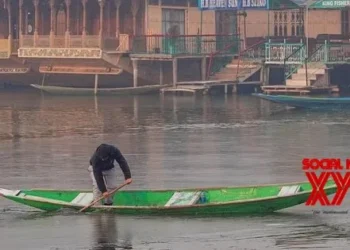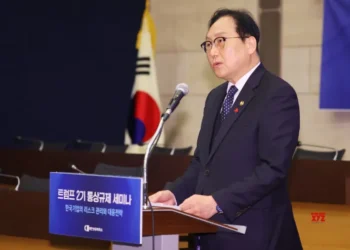Chief Minister Mamata Banerjee’s dreams for a strong base of the state’s small & medium enterprises (MEME) segment are faced by the hurdles of a complicated and comparatively high rate of the environment tax imposed by the West Bengal Pollution Control Board (WBPCB).
Recently, a group of industry association members have highlighted this matter to the state government and has sought its intervention to reduce the tax rate on this count.
One such city-based industrialist, on strict condition of anonymity, told IANS that the first tranche of tax, christened “Consent to Establishment”, is imposed at the time of the receipt of proposal for setting up the industry.
“We have collected comparative data on such tax imposed by the different state pollution boards and from that data, it will be clear how high the state’s tax structure on this count is. Say for a proposed industrial unit with investment size of Rs 150 crore, the ‘Consent to Establishment’ tax imposed by the state government is Rs 17.10 lakh,” he said.
According to him, a somewhat similar tax amount in the case of Tamil Nadu is Rs 2.80 lakh, for Bihar it is Rs 1.50 lakh, and for Punjab it is Rs 1.05 lakh.
Then comes the second tranche of environment tax imposed by the WBPCB which is titled as ‘Concept to Operate’, which is imposed in the interim period between completion of the setting up of the manufacturing unit and the beginning of production process.
In this case, two rates imposed in west Bengal are quite high at Rs 18.59 lakh for an industrial unit with investment size of Rs 150 crore. In the case of Tamil Nadu and Punjab, the figure is Rs 2.80 lakh, for Bihar, it is Rs 2.75 lakh and for Jharkhand, it is Rs 2.20 lakh.
Economists and industry observers feel that taxes imposed by the WBPCB are one of the limited avenues for generating state’s own tax revenue other than the state excise duty, it is doubtful how far the state government will be able to rationalise the tax structure on this count.
Repeated attempts by Media to get a reaction from state Finance Minister, Chandrima Bhattacharya failed as the minister was not reachable over phone.
According to Professor of Economics, Santanu Basu, since the state’s existing land policy and special economic zone policy is not conducive for attracting big-ticket investment in the manufacturing or services sector, MSME sector is the only avenue for revenue generation for the state government other than state excise.
“So, the state government with its market borrowing and state excise dependent cash- strapped exchequer will try to churn the state’s own generation from whatever possible avenues. So, in my opinion, with framing proper policies to attract big ticket investment there is no other way out for the state government but to continue with the higher taxes from MSME sector,” he said.
City-based industry observer and investment consultant Nilanjan De said that standalone MSME units can never form a solid MSME base for any state. “The strongest MSME base in any state is where these small and medium industries form a chunk of the ancillary or supportive units of big industries. But since with the current policies in place, the scope for setting up big industries in the state is bleak, there is hardly any option for the state government to reduce this structure on this count for MSMEs,” he said.























